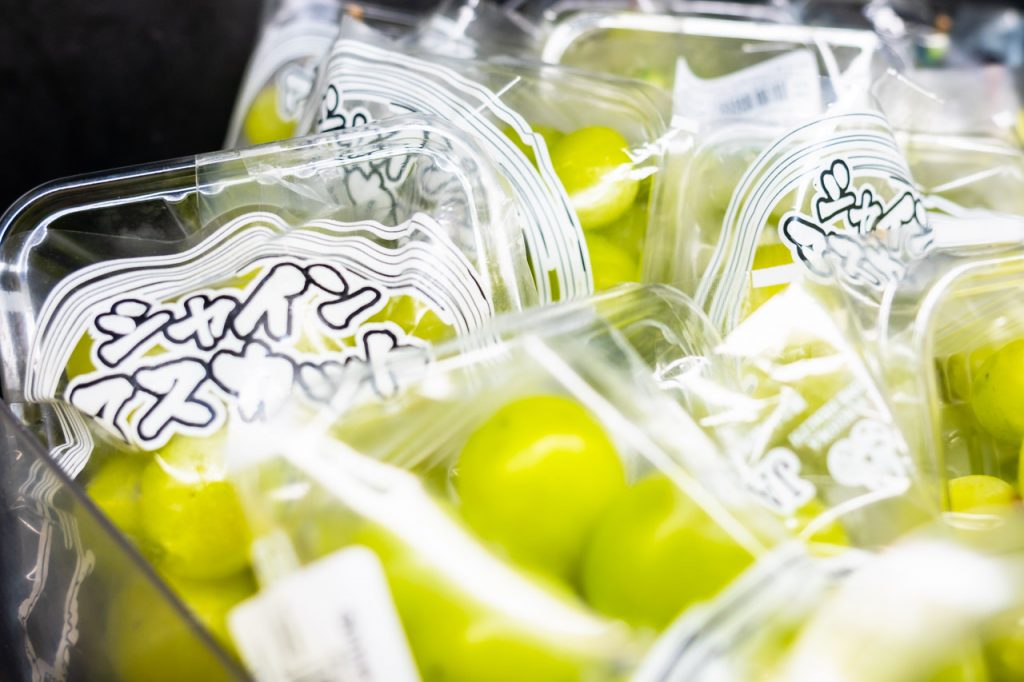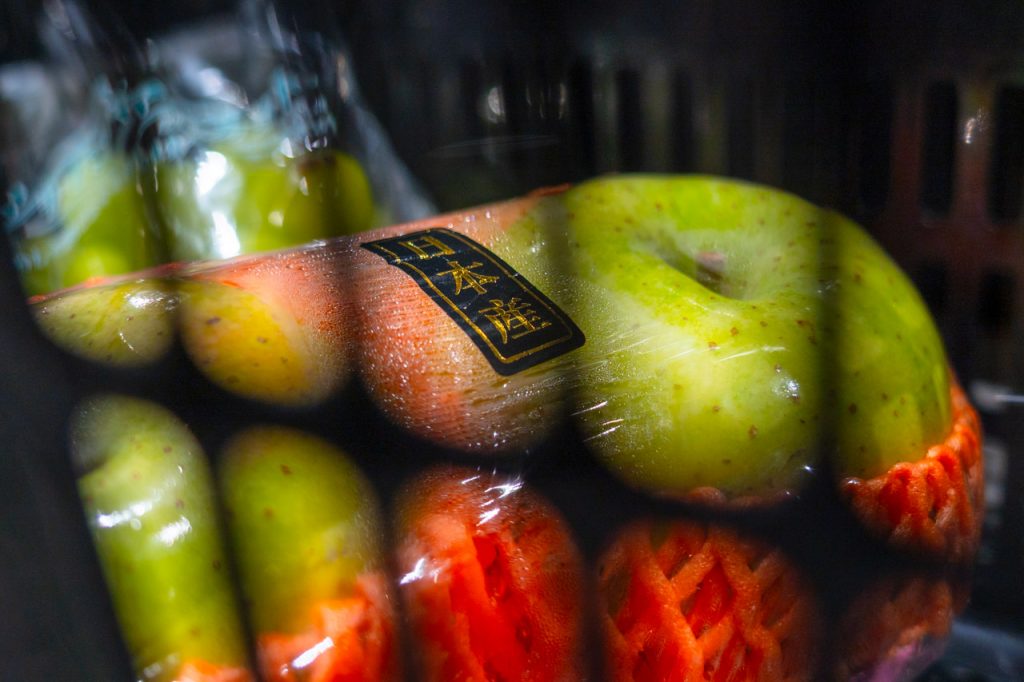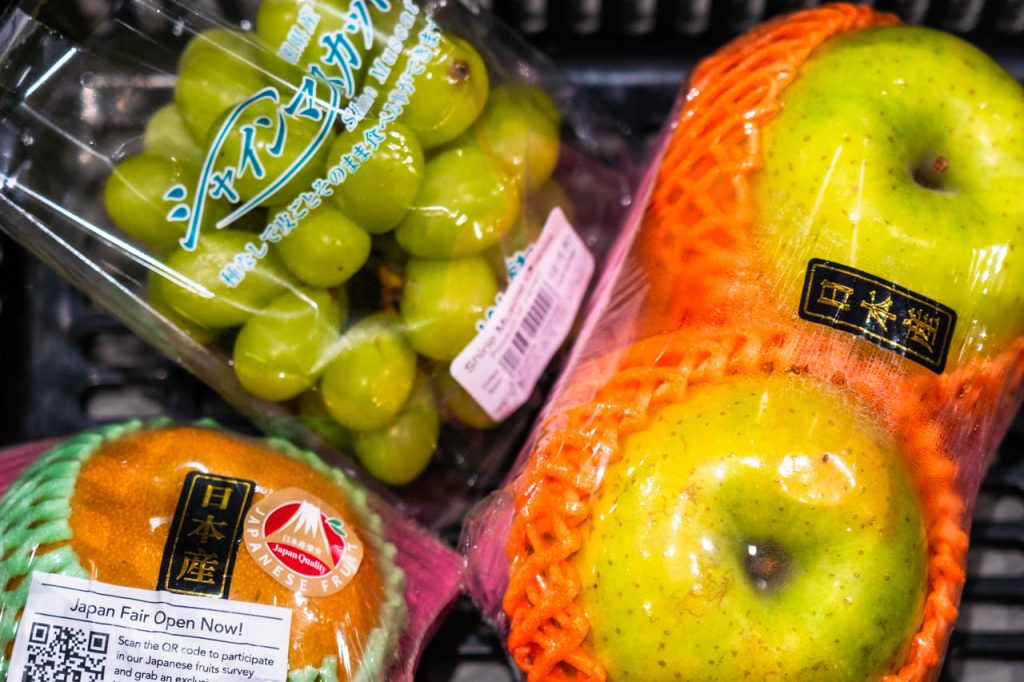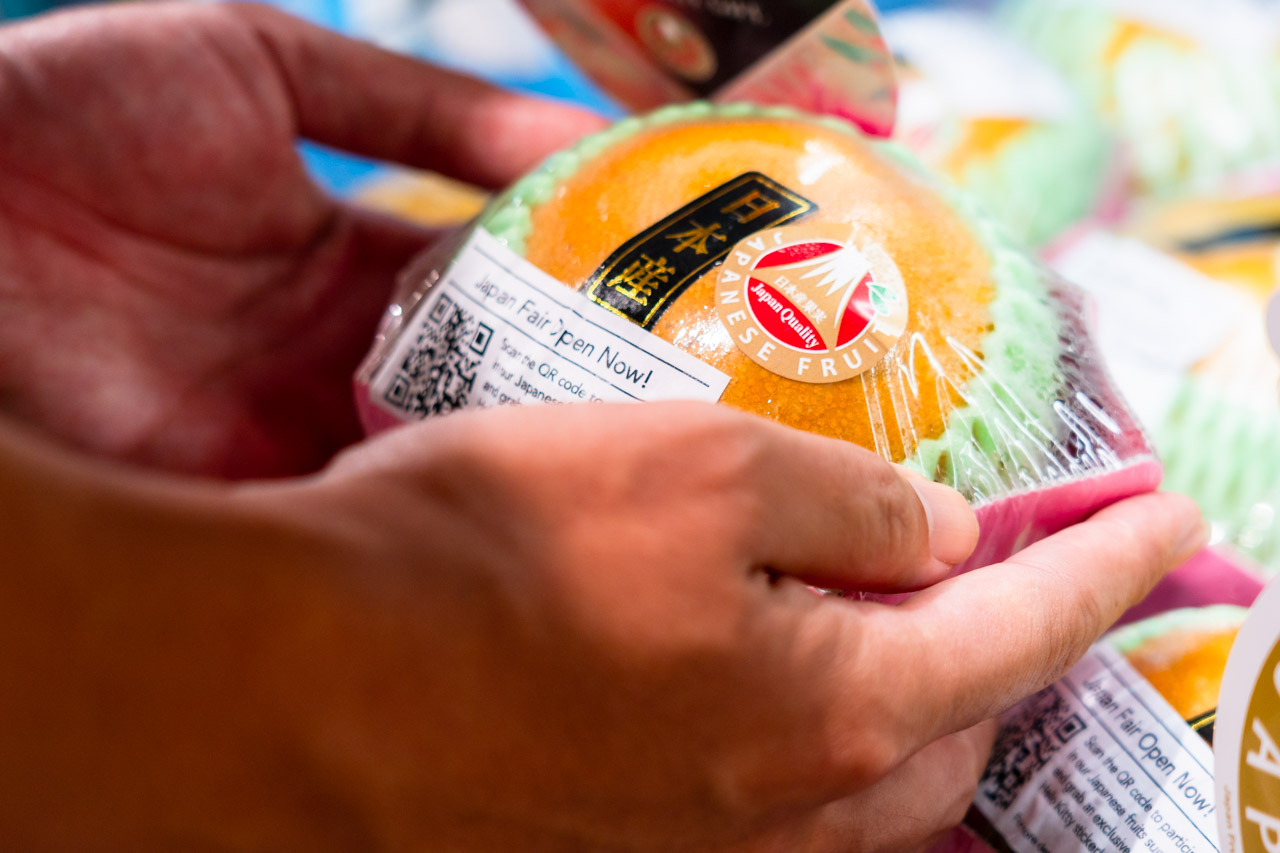All images by Nicholas Chang for RICE Media
Darren Cai recalls raising a few eyebrows when he first brought Japanese fruit as gifts to a birthday party in Singapore.
Over time, his friends have come to recognise the sentiments that he is trying to express when he splurges on premium Japanese fruit for gifts. The 36-year-old has even spent hundreds of dollars on a single melon.
“Giving ang bao can feel like you’re paying a toll at the door of a party,” Darren says with a laugh.
“When you gift fruit, the recipient has to enjoy it soon—they can’t chuck it in a regifting pile!”
The Japanese tradition of fruit gifting, which dates back over a millennium, is gradually catching on in countries like Singapore—the tender loving care that goes into nurturing these fruits resonates with many Japanophiles and their recipients alike.
Perhaps there’s a deeper reason for this popularity. In high-context societies like Japan and Singapore—where a lot isn’t vocalised—Japanese fruits have proven to be the perfect spokesperson for everything that we’re too shy to say. We’re non-confrontational, non-verbal, and assume that everyone is in common understanding.
For everything else we yearn to say, though, thoughtful gifts do the talking.
In recent times, Japanese fruit has received a nod from more and more Singaporeans, despite Singaporeans’ notoriously high standards. Japanese fruit might be attached to head-turning price tags, but Singaporeans apparently feel that these premium produce are worth forking out good money on.
We’re a dichotomous people who will be tight-fisted when spending on ourselves, but might spend extravagantly on our loved ones. In the case of flawless fruit that subtly and elegantly convey our sentiments, we are gladly parting with our money.
You Get What You Pay For
While some might see Japanese fruit as just fruit, Darren sees Japan’s meticulous agricultural standards and cultural appreciation for premium produce.
“The Yubari melon’s sweetness is nuanced by subtle umami-like notes—if you’re curious, I definitely recommend trying it at least once,” he recalls with a smile, his eyes lighting up at the memory of his first bite.
Sourced from its namesake town in Hokkaido, the Yubari melon is renowned not just for its flawless appearance and nuanced flavor but also for its exceptional textural consistency—elements that make it a rare luxury even among the elite class of Japanese fruits.
Darren considers himself fortunate to have acquired one of these sought-after melons during a trip to Hokkaido. In Japan, Yubari King Melons often fetch astronomical prices, with the record-setting pair selling for a staggering 5 million yen (S$62,000) in 2019.
Darren’s own melon, priced at around S$250, was a luxurious expense that he felt was well worth it.
He’s aware that for many, such a purchase might cause some Singaporeans’ jaws to drop. But for Darren, it wasn’t just about the taste—it was about indulging in a uniquely Japanese experience, rooted in centuries of craftsmanship and tradition.
As a copywriter who has had the opportunity to explore some of the finest markets in Japan, including Tokyo’s Tsukiji Market, Darren is no stranger to luxury fruits. He emphasises that these top-tier cantaloupes undergo stringent quality checks before reaching consumers, ensuring that buyers and gift recipients alike are never disappointed.
“You can’t taste test fruit in supermarkets, but with Japanese fruit, you’re guaranteed to get what you pay for—which is a top-tier experience,” he explains. This reliability and consistency set Japanese fruits apart from others, allowing them to command such high prices in both domestic and international markets.
Beyond their flavour, Japanese fruits like the Yubari King Melon are cultural icons, often given as prestigious gifts that carry a message of respect and admiration. For Darren, it’s more than just about taste—it’s about sharing in a time-honored tradition, where each bite is a reflection of the farmer’s dedication and perfectionism. And that, for him, is what makes it truly worth every dollar spent.

Imbuing Fruit With Love
Tetsuya Ito, 49, is the best candidate to expand on the many steps of backbreaking work that go into nurturing top-quality Japanese fruits.
“The strawberries I ate as a child were sour, so I had to dip them in sugar. I was surprised by the sweetness of Amaou Strawberries [that I tried as an adult],” he recounts. Amaou Strawberries have been carefully crossbred by generations of Japanese farmers to achieve a delightful sweetness.
“This variety of strawberries has become more affordable and accessible in recent years.”
Tetsuya was so mesmerised by premium Japanese fruit, that it convinced him to join the industry. Today, he is in charge of the branding and promotion of Japanese fruit in Southeast Asia for the Japan Food Product Overseas Promotion Center. His personal interest in Japanese fruit is unwavering and, in fact, continues to grow.
“I usually spend around S$100 to S$150 on Japanese grapes and peaches as gifts for my parents, and once managed to buy a Hokkaido Raiden Melon,” he reveals.
He enthusiastically expounds on the meticulous techniques that factor into the costs of Japanese fruits. For example, Japanese apples, which are characterised by their bright red colour, are manually turned every few days so that sunlight can shine on all sides of these apples and ripen them evenly.
Tetsuya explains that Japan’s fruit-producing plants like grapevines and peach trees are pruned with thoughtful precision, and their ideal harvest times are determined by experienced agriculturists using colour charts, colour meters and saccharometers.
“Japanese fruits have become characterised by their strong sweetness, and only fruits with a high sugar content above a certain level are approved and released to the market.”
Tetsuya opines that a grower’s dedication plays an important part in achieving a perfect balance of sweetness and tartness. The literal fruit of their labour is a tangible form of love, and a delicious embodiment of luxury.
Just like with the Japanese, Singaporeans place great emphasis on personal pride and displays of respect.
While the delicate care that goes into fruits convey these well wishes, their hefty prices subtly assure the receiver that the gifter too is doing well.

Already a billion-dollar industry, the Japanese fruit market is ramping up export volume and improving accessibility overseas. This is fuelled by soaring demand in Singapore, where Japanophiles have led to a massive bloom of Japanese restaurants, supermarkets, and pop-up events.
When peach or strawberry season comes around, Quek Xiang Ting, 31, used to make trips to Don Don Donki and Isetan in the city centre to buy these fruits.
“Nowadays, I don’t need to go to great lengths to find these fruits because they have become available in more supermarkets,” she says.
Distributors are exporting more fruit to Singapore’s supermarkets because they expect demand to continue growing.
“We will continue to make improvements to our export system, because we recognise that it is our mission to deliver Japanese fruits to consumers in Singapore, of the same high quality as fruits available in Japan,” Tetsuya remarks.

The Meaning in Melons
In a world increasingly driven by convenience and mass production, the uptick of gifting artisanal Japanese fruits in Singapore speaks to a more profound desire for meaningful connections.
In cultures where love is often shown through actions rather than words, gifting premium fruit has become a powerful way to express sentiments that might otherwise go unspoken while fostering opportunities for shared meals and communal connections.
Might the next ang bao you give fully convey your commitment and feelings towards a loved one? And what is the likelihood that an appliance you give ends up in a friend’s storeroom or being regifted?
An average Singaporean who spends a significant portion of his income on Japanese fruits, Darren encourages you to consider these premium fruits as your next gift.
“There’s a saying that relationships are the most important key to corporate success,” notes Darren. He cites how gifts like hampers and mooncakes tend to pop up at reception desks when various festivals come around, but aesthetically packaged fruits possess a certain novelty.
Perhaps the scarcity of time among Singaporeans, coupled with our emphasis on climbing the corporate ladder, has played a role in perpetuating this trend of gifting premium fruits.
“Besides reinforcing business relationships, [gifting] premium fruit can also remind partners that we ourselves are doing well,” Darren remarks.
“And while we are all out there making money, giving nice gifts to family members will hopefully make up for the time we spend away from them.”





